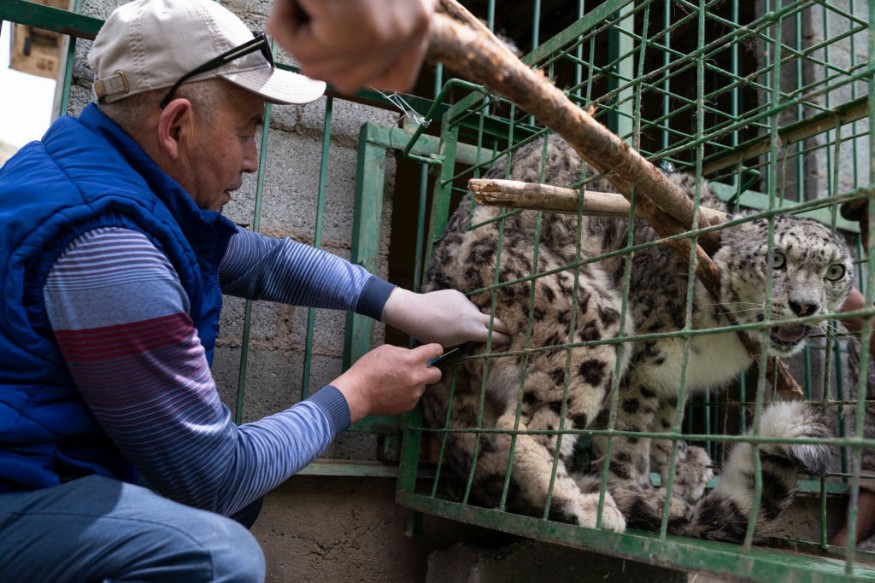A veterinary pharmaceutical and largest animal health company donated 11,000 doses of COVID-19 vaccine to US zoos and animal conservation sites, starting with the Oakland Zoo, California.
Just this week, Zoetis animal health company provided coronavirus experimental vaccines for about 100 animals, including bears, ferrets, big cats, apes and mountain lions from Oakland Zoo, with 70 more zoos to follow.

Dr. Alex Herman, vice president of veterinary services at the Oakland Zoo said that two of their elderly tigers first received the vaccination, with 'lots of positive reinforcement'. According to Dr. Herman, the animals were trained to voluntarily present themselves for injections by giving them rewards.
"It's pretty much the same idea as getting a lollipop after a shot, although the animals seem more willing to volunteer than humans," he added.
Coronavirus Infections in Animals and Pets
Although cases of coronavirus infection were not much in Oakland Zoo, the Oakland Zoo made sure to observe safety and precautionary measures by requiring zoo keepers to maintain safe distance from the animals and wear protective equipment such as masks.
Generally, animal infection of the virus SARS-CoV-2 was more prevalent in big cats and apes in the US, thus they have gotten doses of experimental vaccine primarily such as those in San Diego. The New Jersey-based pharmaceutical company first tested its vaccine on minks. The same vaccine was received by mink farmers in Oregon when the state required and approved vaccination on all farmed minks. However, Christina Lood, a senior communications director for Zoetis said that the vaccine for experimental use was a 'case-by-case basis'.
Meanwhile, Russia claims to have developed vaccines first when Denmark killed about 17 million minks after the virus infection spread to humans, which pushed the vaccination for mink and other animals, such as cats and dogs.
The Federal Service for Veterinary and Phytosanitary Supervision agency did not recommend routine vaccination in pets as they found no current evidence of human infection that was spread by cats and dogs, and they rarely catch the virus at all.
The Russian agency said that the vaccine for pets was more of an 'insurance' against variants that might spread more easily.
Advice for Pet Owners
A study completed by Dr. Dorothee Bienzle, a veterinarian and immunologist at the University of Guelph, in Ontario about cats and dogs living in the same household with Covid-infected humans found severe cases of symptoms in cats more than dogs, although the symptoms cannot be completely pinned on coronavirus.
"I have heard of cats with severe clinical signs but had not seen any cases where they could confirm that the signs were due to SARS-CoV-2," added veterinarian and pathologist Dr. Karen Terio at the University of Illinois at Urbana-Champaign veterinary school.
Researchers suggest that if a person is infected with the virus, one should isolate himself from pet cats or dogs and not sleep in the same bed as them to avoid chances of infection. Dr. Bienzle added that human to animal transmission can be prevented with social distancing and masks.
© 2025 NatureWorldNews.com All rights reserved. Do not reproduce without permission.





